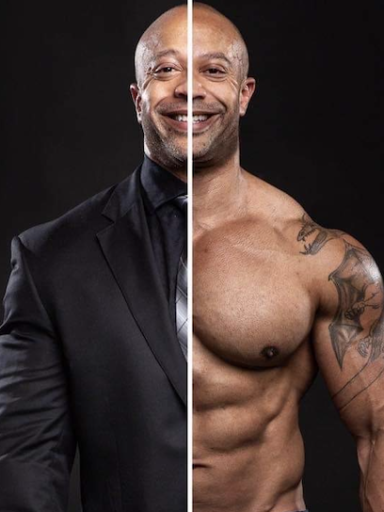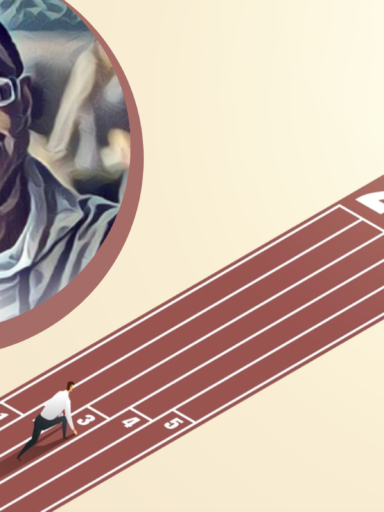For many thousands of years humans only lived to be about 35 years old on average.
Sure, there were always a few that made it into old age, but the vast majority died of
diseases, starvation, accidents, and wars.
Now, in the past 200 years the life expectancy of humans has gone up about 65%
according to the Centers for Disease Control. A better diet, plenty of food, fewer
diseases, lots of rest, plus far fewer wars and accidents has led to men living well past
50 or even 70 years of age.
The problem is, many of our glands that make needed hormones have long quit
working by that age. Replacement of these valuable hormones is seen as a way to
increase lifespan and increase vitality for the aged as well.
Testosterone Is One Of The Main Hormones
Early on, in the mother’s womb, this valuable hormone is responsible for the
development of most of the male characteristics like genitalia, and other differences
that separate boys from girls.
Boys will go on to develop more muscle mass, higher bone density, and other things
like the shape of their skulls, noses, height, and weight. This hormone also has an
effect on personality, energy, and overall well being well into the later years.
Testosterone begins to decline starting as young as age 30 very gradually. By age 60 it
has all but disappeared and by 70 there is likely almost none. It is created and secreted
from the testicles, hypothalamus, and pituitary gland.
As the amounts secreted subside, men reach a point where they have what is called
male hypogonadism which is where there isn’t enough testosterone in the body to do
many of it’s functions.
Some of the symptoms of hypogonadism are chronic erectile dysfunction, a gradual
decrease in muscle mass, lack of ability to conceive children, osteoporosis or loss of
bone mass, lessening of the facial hair and other pubic hair, fatigue, and a lack of sex
drive. Many of these symptoms come on gradually and are hard to spot but they will
persist until some action is taken.
The Most Common Treatments For Hypogonadism Is TRT
In this case TRT stands for Testosterone Replacement Therapy and it’s where doctors
measure the amount of hormone in your blood and determine that you’d benefit with
replacement therapy. The hormone can be administered in several different ways
including injections, skin patches, or rub on gels. Each has it’s advantages and
disadvantages, your doctor should explain them in detail and give you a choice
depending on the dose that he’s recommending that you take.
There are a lot of men that read stories on the internet and therefore believe that high
testosterone levels are the fountain of youth. Most research studies haven’t found that
to be true. However, there is a difference between men taking the hormone that already
have plenty in their systems and those that are lacking. Those that are low in
testosterone will generally feel better and will be restored to the way they felt before
their hormones declined.
It won’t turn back the clock and make an aged man into a 20 year old once again but
they will begin adding bone density, if they work out, they’ll gain muscle mass, and
their mood or disposition will improve as well. It should be pointed out that no pill will
add muscle to a human body that isn’t exercising. Muscles are made when the body
repairs muscles that have been strained during workouts and this process needs that
to happen to build muscle mass.
There Are Some Risks To TRT As Well
It has been said that nothing in life is free, and in no other place is that more apparent
than with the human body. Everything you do to it will have some kind of consequence,
some good and some bad. Jogging is great for your heart and lungs but is horrible for
your knees. A person needs to constantly take into consideration all of the factors, try
to mitigate the disadvantages, and then absorb as many of the benefits as possible.
Those with low testosterone should see improvements in sexuality, energy, alertness,
and vitality. They’ll experience less depression and less sleeplessness. Muscle mass
will stop declining, but to add more muscle exercise is necessary. People that already
have adequate testosterone will most likely not see any differences at all or very slight
differences that are hard to measure.
Some men will start to see acne, both on the face and upper back, almost immediately.
Others will have difficultly breathing while sleeping, swollen ankles, swelling of the
breasts, and other problems similar to puberty ( see a full list of risks here).
In the longer term, men who are on TRT for extended periods have a higher incidence
of cardiovascular problems similar to what a type A individual would have. Those
would include, more heart attacks, strokes, and other forms of heart disease. Plus,
when a man on TRT has a heart attack they have a lower survival rate than others not
on any therapy.
There are theories that prostate cancer is related to hormone therapies but the link
hasn’t been proven in research studies. Prostate cancer is very common in older men
and some doctors will be cautious when prescribing anything to men that have some
risk factors already.
For most men that actually have been diagnosed with hypogonadism, when asked,
they believe the benefits of TRT far outweigh the perceived dangers. For men that
aren’t low on testosterone, there are few benefits that are noticeable, and therefore the
risks should outweigh those slight improvements.
There Are Natural Ways To Boost Testosterone
Adding more exercise to your daily regimen is one way to naturally increase your
testosterone levels. It also has some of the same effects even without adding more
hormones and should be tried first before seeking medications. Adding more fiber to
the diet, eating less red meat, and cutting back on highly processed foods have all
been helpful. Weight lifting is also seen as a way to boost hormone levels, increase
muscle mass, get better cardiovascular health and get rid of fatigue.
Conclusion
If you think that you might be low on testosterone, see a doctor and get the blood test
to be sure. Try getting more exercise, be less of a couch potato, cut back on bad habits,
and see if that doesn’t change your entire world first. Then, if you feel you would
benefit from TRT, give it a shot knowing the risks and benefits that are involved.



